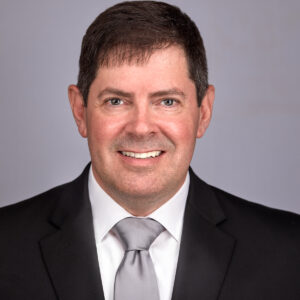Beyond the Resume: How to Assess Leadership Potential in Senior Care Candidates
Strong leadership is critical in many roles within senior care communities, yet identifying candidates who not only possess the necessary skills but also demonstrate a leadership style aligned with the organization’s values can be challenging. To shed light on effective hiring practices, three seasoned senior care professionals shared their strategies for recruiting staff and identifying candidates with the right leadership qualities for the job.
Key Leadership Skills That Are Essential for Senior Care Community Staff

Beth Sholom, owner of The Wedgewood 120
When staff take on leadership roles, a well-rounded combination of skills plays a key role in their success. Leaders must have emotional intelligence, empathy, strong communication, and adaptability. They must also be able to inspire trust and collaboration among staff. “Leaders must also possess a deep understanding of regulatory compliance, clinical standards, and the dynamics of intergenerational teams,” says Beth Sholom, owner of The Wedgewood 120. “Strategic thinking and decisiveness are crucial, but they must be balanced with compassion and a servant-leadership mindset.”
Sandra Rocco-Melville, executive director of Noah Homes, emphasizes the importance of emotional intelligence in candidates who may hold leadership roles. “Leaders should be aware of their emotions and take the time to recognize the needs of their colleagues and those they care for,” she says. “Sometimes, this looks like setting aside your to-do list for a moment to actively listen to the needs of others.”

Sandra Rocco-Melville, executive director of Noah Homes
Given the challenges of today’s senior care workplace, Rocco-Melville also looks for adaptability. “We are facing a mental health crisis, a workforce crisis, and continued change in the wake of the pandemic,” she explains. “Leaders need to be able to pivot and adapt.” Rather than relying on what the community has always done well, Rocco-Melville wants her staff to stay curious and look for ways to continue doing things well, even in the face of change.
The senior care industry is undergoing rapid transformation, driven by workforce shortages, rising resident acuity, and growing expectations from families. “Leaders must therefore be particularly adept in resilience, crisis management, and technological fluency,” says Sholom. “The ability to lead change and champion innovation is also vital, especially in the face of shifting models of care like home-based and boutique residential settings.”
How to Identify a Candidate’s Leadership Skills During the Hiring Process
Each expert takes a slightly different approach to identifying leadership skills during the hiring process. Sholom looks for language in cover letters reflecting empathy, initiative, and collaboration. She also looks for stories of how candidates handled tough situations or led with compassion. When reviewing resumes, Sholom looks for measurable outcomes and tenure in past roles to gain insight into a candidate’s leadership impact and stability. During interviews, she uses behavioral questions and real-life scenarios to evaluate problem-solving, emotional response, and alignment with the community’s care philosophy.
Rocco-Melville also uses interview questions to see if candidates align with the community’s culture. She asks behavioral questions that prompt candidates to share real-life experiences. “We seek to understand a candidate’s ability to connect with others and ask them about their purpose and desires,” Rocco-Melville explains. “In addition to being a good fit for Noah Homes, we want to ensure the role a candidate seeks will be life-giving for them.”
Michael Branch, MorseLife Health System Executive Director, Luxury Housing, doesn’t desire or need a cover letter. “[The cover letter] is a well-planned document and typically an artistically written one,” he says. “Very little in a healthcare leader’s world is perfectly planned, so I’m more interested in how you handle challenges and opportunities. Unless it conveys the spirit of someone’s personality and what drives them as an individual, I have no use for it.”
Instead, Branch looks for statistics and measurable accomplishments in a cover letter. The accomplishments should relate to customer satisfaction; employee satisfaction, retention, and culture; change management and process improvement; and successful financial achievements. “I’m reluctant to proceed with a resume that uses vague complimentary language like ‘results driven’ or ‘experienced leadership’ if it isn’t followed with measurables,” he explains. “A candidate for a successful leadership role should already know to define success with specific examples that are measured and their outcomes.”
During the interview, Branch asks candidates about how they felt about the hiring process. Doing so lets him evaluate how the candidate handles typical HR delays in the recruitment process. “It is usually non-leader that conducts that process, so getting the candidate’s opinion can demonstrate their patience, follow up, how they handle other departments with different skillsets,” he says. “I also follow up with the recruitment team to understand how the candidate treated them, how promptly they followed up, and how well they followed the instructions and assignments given to them.”
Branch explains that candidates who have interviewed for several positions prior are likely to have experienced being ghosted by a company. “Understanding how they felt about the experience and how they articulate that is a chance to see how they handle something that personally affects them,” he says. “That insight can be a testament to their character and resilience.”
How to Ensure a Candidate Is a Good Fit for the Community’s Culture
In addition to finding a candidate with desirable leadership skills and experience, it’s equally important that the candidate is the right fit for the community’s culture. Sholom discusses the community’s mission, values, and day-to-day realities and asks candidates how they would embody and support the culture. She also introduces candidates to team members across different departments, allowing her to observe their interpersonal interactions. “We also value candidates who ask meaningful questions about our team, residents, and vision,” says Sholom. “It shows they care about alignment, not just advancement.”
Branch structures his interviews to evaluate a candidate’s cultural fit. He values humility and empathy, and seeks candidates who treat everyone with respect- regardless of their place in the organizational hierarchy. “I want someone that believes a housekeeper or landscaper is just as needed and important as they are, and behaves as such, regardless of with whom they are working at that moment,” he explains.
During interviews, Branch asks candidates for real examples by asking questions like, “Tell me about the silliest thing you’ve done to make your team laugh at your expense,” or, “Tell me specifically what you do to create culture and camaraderie on your team?” The responses give him insight into how involved the candidates are with staff at each layer. He also watches their body language to see if candidates get excited when sharing their responses.
He also asks unusual questions to get insight into the candidates’ general outlook on life. These questions might include, “What’s the last thing you did to learn something new outside of work,” or, “Do you consider yourself a lucky person?” He’s looking for candidates who are willing to constantly improve themselves. As for the question about luck, Branch explains that if candidates consider themselves lucky or blessed, it shows that they are aware of the fact that they aren’t in complete control of their success. “It means they rely on others and have gratitude that the goodness of others has helped them achieve their goals,” says Branch. “Someone that says they did everything on their own or control their own outcomes is not a team player.”
Structuring Interviews for Valuable Insights
Hiring managers can learn a lot about candidates’ leadership experiences and approaches through carefully structured interviews. Asking deliberate, carefully planned, and even unusual questions can help you gain important insight into candidates’ experiences and styles.
While strategic planning is important, Branch adds that ultimately, the interview process should be fun. The candidate should feel like they and the community are on mutual ground and need something from each other. “I want candidates to feel like we would be lucky to have them, and know it,” says Branch. “By sitting next to the candidate and not behind a desk, and having a two-way conversation that doesn’t feel like a question and answer session, I am able to close the conversation with both of us deciding together if the relationship is a fit for each of our success and fulfillment.”

Paige Cerulli is a contributing writer to i Advance Senior Care.
Related Articles
Topics: Communication , Executive Leadership , Facility management , Featured Articles , Leadership , Operations , Staffing











